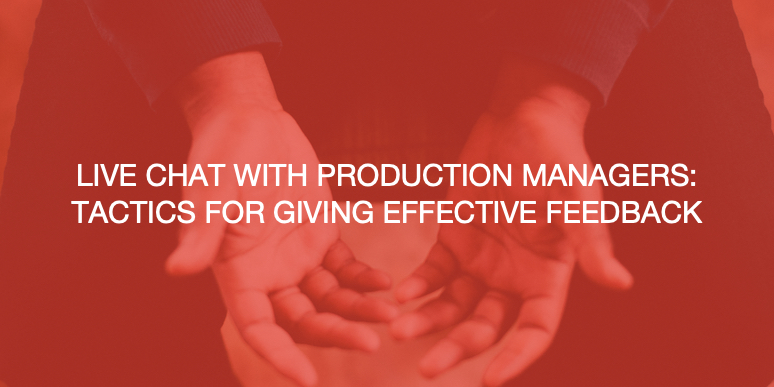
Bringing on a new manager to an existing event or production team is challenging. Especially if your team is running active projects with tight deadlines. But the good news? Normally, the need the hire means your business is growing! Even if you’re just replacing someone, you’re still opening up your company to different ideas, injecting some new energy into your team.
“Onboarding,” or organizational socialization is critical in setting the stage for a strong, long term relationship between you and your employee. It allows you to embrace feedback from an outside perspective and increases the effectiveness of your new manager. All while maintaining the consistency of your brand when working with clients.
It’s important to spend time thinking about how you onboard people. The event business is a lot about the people so make sure you get it right! It doesn’t matter whether you are hiring a full-time employee or a freelancer on a project-by-project basis. We’re talking about a manager here, someone with decision-making authority who is representing you on site. The more he or she understands and absorbs, the better. Here are some other suggestions for developing your best onboarding process.
1. Define Company Principles, Mission, and Goals
In essence, how would you define your company’s culture? This can sometimes be difficult to put into words. Start by asking and then answering for yourself some simple questions.
-
Why do we do the work that we do?
-
What is the number one thing for which we want to be known?
-
What sets us apart from other event companies?
-
How do we select clients to work with
-
Who is our ideal client?
Once you are confident in these answers, share them with a new hire. It lends context and clarity to the responsibilities you posted about in the job description. Armed with an understanding of the big picture, your new manager can now begin to take ownership of decision-making. He or she can tap into personal experiences, bringing to bear any tools that might help your company achieve these goals.
2. Listen and Learn before you Mandate
It’s easy to forget but hiring a new team member is just as much a learning opportunity for you as it is for the new hire. You work in your business every day. Likely, you’ve developed some blind spots. A new person offers unbiased perspective on trouble spots you may not see. Ever catch yourself saying, “We do X this way because we’ve always done it that way?” Don’t be too quick to chide your new manager for diverging. Ask the question and learn more about his or her approach. It might be better!
Of course, some things need to be done your way. Haven’t you’ve spent a lot of time figuring out your processes? You’re running a successful business, so something must be going right. When you do need to correct someone’s approach, take the opportunity to explain your thinking. Share the consequences and potential impact it has on other parts of the business. Context. Clarity.
3. Love Your Documentation
A new employee’s first day is akin to drinking from a fire hose. There is the overload of critical information. The emotional and physical strain of analyzing team dynamics and interactions. And generally trying to fit in and not spill coffee all over a set of design plans. This is where having your documents in order can really help. Nothing beats going over something in person but providing some resource materials can allow your hire to absorb information at his or her own pace. Documentation allows eliminates the chance for misinterpretation. No matter who is doing the onboarding or acting as a mentor, a unified message is communicated. And if disciplinary actions are required, it’s a whole lot easier to point to a document. Speaking of mentors…
4. Assign a Mentor!
Assign a colleague (that isn’t a boss or direct superior) to act as a peer advisor. This mentor acts a safe contact, one who can answer questions or confirm practices. Sometimes, a new team member may be uncomfortable going directly to a supervisor with a question. The mentor keeps dialogue open and accelerates the pace of assimilation.
5. Be patient
Let’s be honest. It’s gonna take a while for a new team member to fully integrate and get into the groove of working with your organization. Stepping right into a managerial role from the outside brings a great deal of pressure to perform. And perform quickly. The last thing you want is your shiny new hire putting this pressure on him or herself. Let it be known that there is room for mistakes. Sometimes, the comfort of being allowed to fail reduces the possibility of actually failing.
Ultimately, the best onboarding processes recognize that the business is evolving, too. While you may develop good practices, take these hiring periods as opportunities to review yourself as well. Holding periodic check-ins with your team can keep you current and relevant. You will truly be building a place that people clamor to work with and work for. Might mean it’s time to do another round of hiring! Lather, Rinse, Repeat.
Managers – how do you hire and onboarding new event planners, production managers, or other team leaders? Let us hear your expertise in the comments below.



